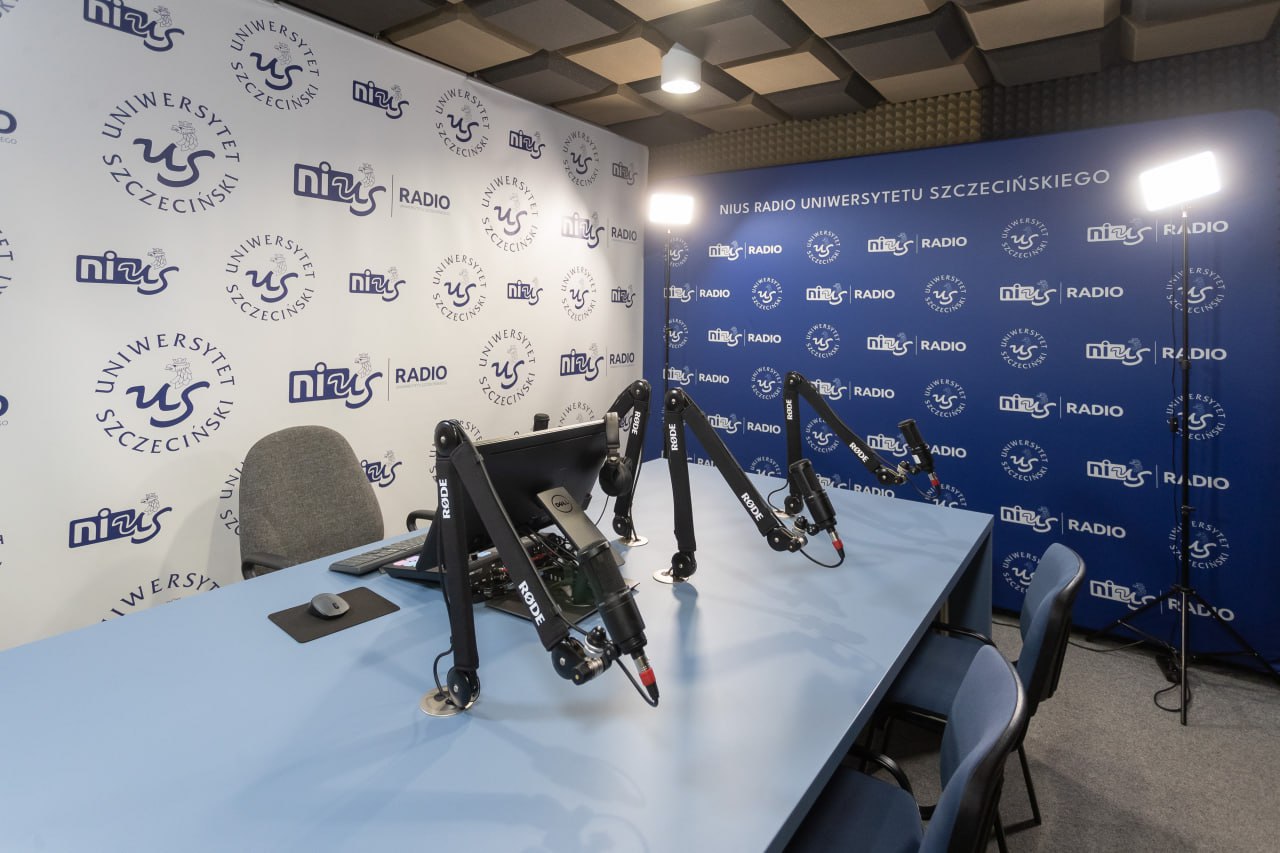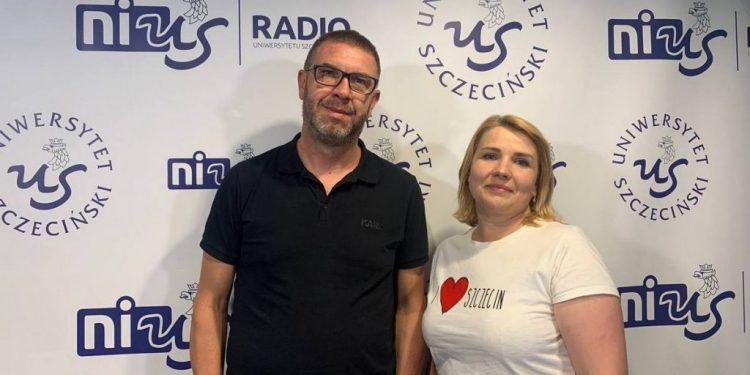A successful example of university radio is the project of Szczecin University, which was founded only in December 2021.
This is an important project for the university because Internet radio, as a promising modern media, helps to popularize the educational institution, quickly convey information about what is happening at the university, and is also a powerful practice base where every student can realize their potential. The experience of Nius Radio of the University of Szczecin is exciting and inspiring. In addition to its rapid development and the creation of such a variety of content in such a short time, the radio also allocates space for Ukrainian topics, supporting Ukraine in every way during the war.
Konrad Wojtyła was the author of the idea to create and realize the plan. The concept was very ambitious – the creation of modern and professional university media, starting with the radio station of the University of Szczecin. He put into it not only all his journalistic experience and management skills but, above all, his heart. Within a few months, it was possible to create almost everything from scratch. They came up with the name – NIUS Radio, prepared a logo and a consistent graphic concept, built a web portal, and started working on a radio program. They modernized the radio studio and invested in high-quality equipment: computers, microphones, recorders, cameras, etc. Money is important, but building a team and organizing a newsroom is always the hardest part.

Today, NIUS Radio is available all over the world through the Internet portal, as well as with the help of applications for mobile devices with Android and iOS operating systems. In less than 1.5 years, the radio became a recognizable brand not only at the academic forum but also in Szczecin and beyond. On the basis of this infrastructure, a working studio was created, where educational classes – practice, and internships are held. For postgraduate students of journalism, individual workplaces are available: multimedia boards, laptops, and programs for editing.
Konrad Wojtyła, the founder and currently head of the student radio, says:
“We live in the era of media convergence. Radio today is completely different than it was twenty years ago. Everyone can find themselves. I am pleased when young people who have completed their internships want to stay with us for longer.”
Call the Lviv Journalists’ Solidarity Center at 097 907 9702 (Nataliya Voitovych, the Lviv JSC coordinator). The Center’s address is 5 Solomiyi Krushelnytskoyi Street.

ABOUT JSC
The Journalists’ Solidarity Centers is an initiative of the NUJU implemented with the support of the International and European Federations of Journalists and UNESCO. The initiative is designated to help media representatives working in Ukraine during the war. The Centers operate in Kyiv, Lviv, Ivano-Frankivsk, Chernivtsi, Zaporizhzhia, and Dnipro and provide journalists with organizational, technical, legal, psychological, and other types of assistance.
ABOUT UNESCO
UNESCO is the United Nations Educational, Scientific, and Cultural Organization. It contributes to peace and security by promoting international cooperation in education, sciences, culture, communication, and information. UNESCO promotes knowledge sharing and the free flow of ideas to accelerate mutual understanding. It is the coordinator of the UN Action Plan on the Safety of Journalists and the Issue of Impunity, which aims to create a free and safe environment for journalists and media workers, thus strengthening peace, democracy, and sustainable development worldwide. UNESCO is working closely with its partner organizations in Ukraine to provide support to journalists on the ground.
The designations employed and the presentation of material throughout this digest do not imply the expression of any opinion whatsoever on the part of UNESCO concerning the legal status of any country, territory, city, or area or its authorities or concerning the delimitation of its frontiers or boundaries.
The authors are responsible for the choice and the presentation of the facts contained in this digest and for the opinions expressed therein, which are not necessarily those of UNESCO and do not commit to the organization.
Myroslava Rudyk

 THE NATIONAL UNION OF
JOURNALISTS OF UKRAINE
THE NATIONAL UNION OF
JOURNALISTS OF UKRAINE
















Discussion about this post